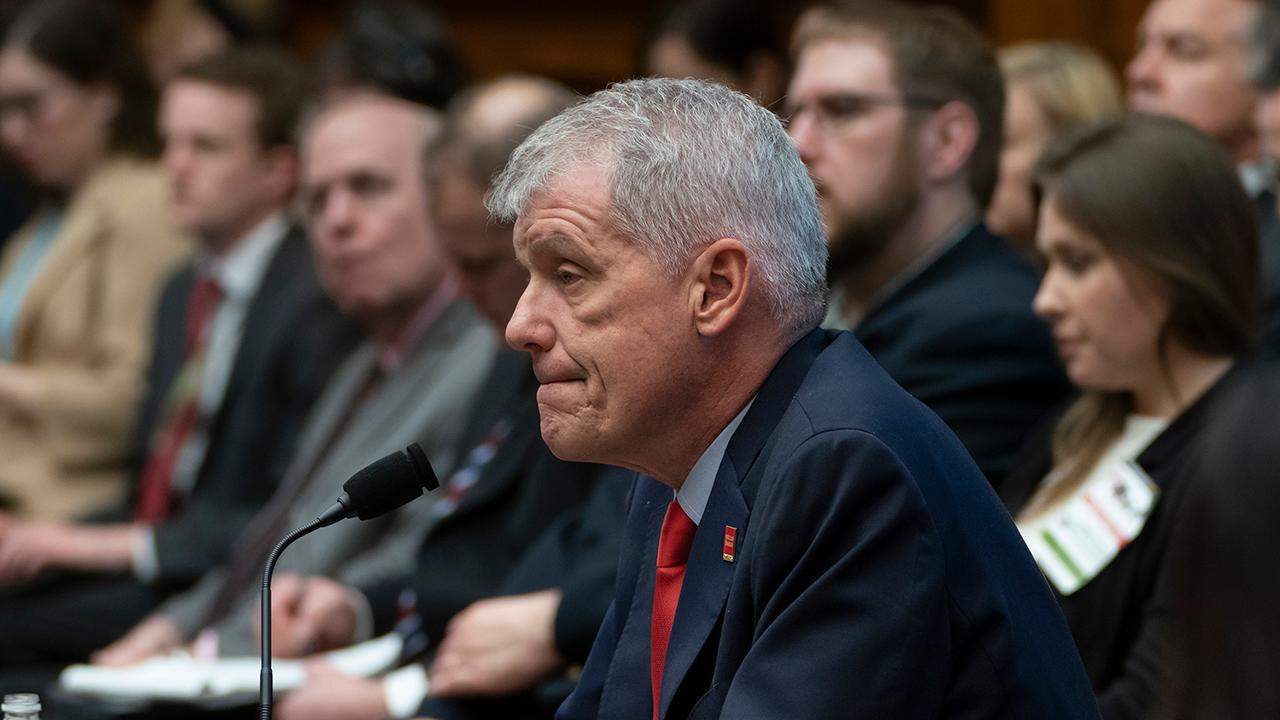US banks, in contrast to Wells Fargo, tout post-financial crisis improvements
Top U.S. banking executives on Wednesday will try to draw a stark divide between their operations and those of competitor Wells Fargo, which is reeling from a slew of scandals that led to the departure of a second chief executive in the last three years.
The CEOs of JPMorgan Chase, Bank of America, Morgan Stanley, Goldman Sachs and Citigroup plan to tell the House Financial Services Committee that operations at their institutions have improved since the financial crisis, as capital reserves remain robust and more stringent compliance protocols help prevent nefarious behavior.
The hearing – the first time the top executives of the nation’s largest banks are assembled before a congressional panel in over a decade – comes after a separate, fiery hearing last month where former Wells Fargo CEO Tim Sloan failed to assuage concerns from lawmakers over the ongoing problems at the embattled lender.
While none of the CEOs directly cite Wells Fargo, the stress on efforts to launch new ethics guidelines to rebuild public trust, among other initiatives, appear aimed at blunting the expected criticism from members, much of which was foreshadowed at the prior hearing with Sloan.
“Creating a strong culture of compliance does not mean we will never make another mistake. What it does mean is that we have a governance structure in place that helps us identify mistakes and misbehavior, learn from them and hold ourselves accountable for whatever actions preceded those episodes,” Citigroup CEO Michael Corbat wrote in prepared testimony.
Among the list of troubles at Wells Fargo, one of the most significant scandals involved the creation of fake savings and checking accounts. The lender eventually paid $575 million to settle with 50 states and the District of Columbia.
When the practice was first exposed, a number of employees cited the intense pressure from management to open as many consumer accounts as possible. Now, as part of the financial sector’s push to tout the transformative steps taken since the financial crisis, rival banks are highlighting efforts to manage risk through improved workforce training.
“Long-term and enduring success lies in having a strong culture and talented employees who live our values,” Morgan Stanley CEO James Gorman wrote in his testimony. “Our culture guides our employees, and our values inform everything we do: we have a commitment to putting clients first, leading with exceptional ideas, doing the right thing, and giving back.”
| Ticker | Security | Last | Change | Change % |
|---|---|---|---|---|
| BAC | BANK OF AMERICA CORP. | 56.41 | -0.12 | -0.21% |
| JPM | JPMORGAN CHASE & CO. | 322.10 | -0.30 | -0.09% |
| WFC | WELLS FARGO & CO. | 94.61 | +0.64 | +0.68% |
| C | CITIGROUP INC. | 123.77 | +1.08 | +0.88% |
| MS | MORGAN STANLEY | 182.35 | +2.39 | +1.33% |
Chase CEO Jamie Dimon stressed that executive pay at the lender is designed to “hold executives accountable, when appropriate, for meaningful actions or issues that negatively impact business performance in current or future years.”
"Through regulatory reform efforts, we have fundamentally improved the safety and soundness of our financial system, substantially raised capital and liquidity requirements at our largest institutions and established a credible resolution planning process to ensure that taxpayers will no longer be on the hook in the event of failure," he wrote in submitted testimony.
Meanwhile, Goldman Sachs CEO David Solomon touted the investments in the investment bank’s global compliance operations, part of a bigger commitment to “learn the right lessons from our experiences, and to operate with the utmost integrity in all our activities,” he wrote in prepared testimony.
CLICK HERE TO GET THE FOX BUSINESS APP
Spurred by the GOP-led tax law, the U.S. banking sector reported record profits in 2018, drawing sharp criticism from Democrats who argue that the measure favored the wealthy at the expense of lower-income individuals.
Last year, Congress advanced the first legislation since the financial crisis to roll-back regulations on the industry, though many of the reforms were targeted at smaller, regional banks.




















